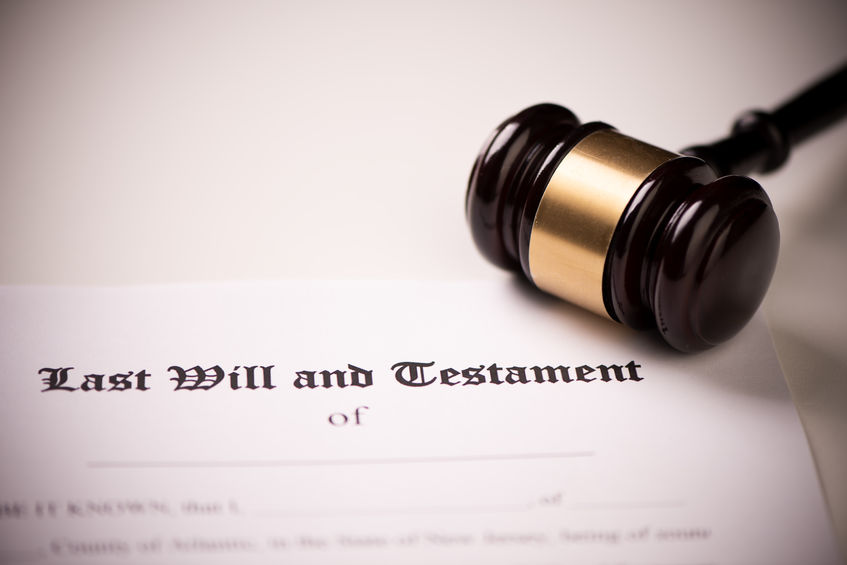At EPGD, we strive to communicate the importance of succession planning and are eager to spread knowledge on every aspect of having a valid will. More times than not, a will may potentially open itself up to an opportunity to be contested. This is known as a will contest, and Florida, among many other states, recognizes a number of grounds for contesting a will.
Lack of Proper Formalities
Florida is a strict compliance state when it comes to executing a valid will. What that means is, in order for a will to be valid, the testator must sign or acknowledge the will in the presence of two attesting witnesses, and the two attesting witnesses must sign the will in the presence of each other. Common instances that open up grounds for a will contest are when both witnesses and the now decedent all signed at different times.
A similar will contest came about in 2009, when the will of Nina Wang, the world’s richest woman at the time, went into dispute by her siblings and the billionaire tycoon’s alleged lover, Peter Chan-Chun-Chuen. The battle lasted years and Peter was finally found guilty of forging the billionaire’s signature on her late will. This not only put him in jail, but the will was later deemed to be invalid, and her prior 2002 will was found to be effective. Likewise, if the will was never properly executed under Florida law, and the court makes a finding that the decedent never actually signed the will, it would be deemed invalid and any prior will would be deemed effective.
Lack of Capacity and Undue Influence
A testator is required to have mental competency to form a valid will. Proper mental capacity is understanding the nature of his or her assets and the people to whom the assets are going to be dsitributed to. Proper mental cacity is required by Florida law during any will execution, and lack of capacity is grounds for a will contest. If a court makes a finding that the testator did not have capacity at the time he or she signed, the will is then void.
In typical situations, lack of capacity is established through prior medical diagnosis of dementia, Alzheimer’s, or psychosis, or through the testimony of witnesses as to the irrational conduct of the deceased around the time the will was executed. Circumstances involving undue influence usually play hand in hand with a testator that lacks a reasonable amount of mental capacity, and generally leads to the decedent being compelled or coerced to execute a will as a result of improper pressure exerted upon him or her. Normally done by a relative, friend, trusted advisor, or health care worker.
As far as relatives go, a child could coerce their elderly parent to write the other children out of his or her will. Or in other instances, after the decedent has suffered some decline in mental ability, many undue influencers become new friends or acquaintances of the decedent toward the end of their life. In many cases, the person who is performing the undue influence will upset a long-established succession plan where the majority of the estate was anticipated to pass to the direct descendants or other close relatives of the decedent. This, for example, was apparent in Liliane Bettencourt’s case, the L’Oreal heiress and second richest woman in the world at the time, had her financial affairs taken control of by her daughter once she suffered a spiraling mental decline after being diagnosed with mixed dementia and Alzheimer’s disease. The battle to protect her mother resulted after a photographer and new close friend of the elderly heiress induced her into giving away over $1 billion of her assets prior to her death and after she was diagnosed with dementia and Alzheimer’s.
Florida law has since established a set of non-exclusive factors to determine whether a beneficiary has actively procured a will. Among those factors, include, presence of the beneficiary at the execution of the will; presence of the beneficiary on those occasions when the testator expressed a desire to make a will; recommendation by the beneficiary of an attorney to draw the will; knowledge of the contents of the will by the beneficiary prior to execution; giving of instructions on preparation of the will by the beneficiary to the attorney drawing the will; securing of witnesses to the will by the beneficiary; and, safekeeping of the will by the beneficiary subsequent to execution. If undue influence is found to be apparent during the execution, the will becomes invalidated by the courts.
Insane Delusion
Alternatively, will contests may arise when there are concerns raised with regard to what the testator at the time of signing actually believed to be true. Insane delusions occur when the testator, against all evidence to the contrary, believes something that is not true, and creates or changes an estate planning document based on the insane delusion.
Fraud
Lastly, a will contest can come about after a beneficiary of a will causes the testator to make or change a will based on misrepresentations. This is just as common as any of other will contest, and may arise after, for example, a child tells lies about their sibling in order for their parent, who is the testator of the will, to disinherit that sibling from the will. Upon a finding of fraud, the will in Florida will be found as void.
Contesting a will may be long and challenging and an experienced estate planning attorney should always be involved in the formation process of the will. To avoid any room for error or ambiguity, our Trusts & Estates Team at EPGD Business Law are here to ensure your succession plan is unflawed and your will reflects your wishes and desires. We strive to make this process easy and seamless, and effectuating that is our goal. Should you wish to have a consultation or connect with one of our team members, please don’t hesitate to reach out to us. We look forward to hearing from you.






